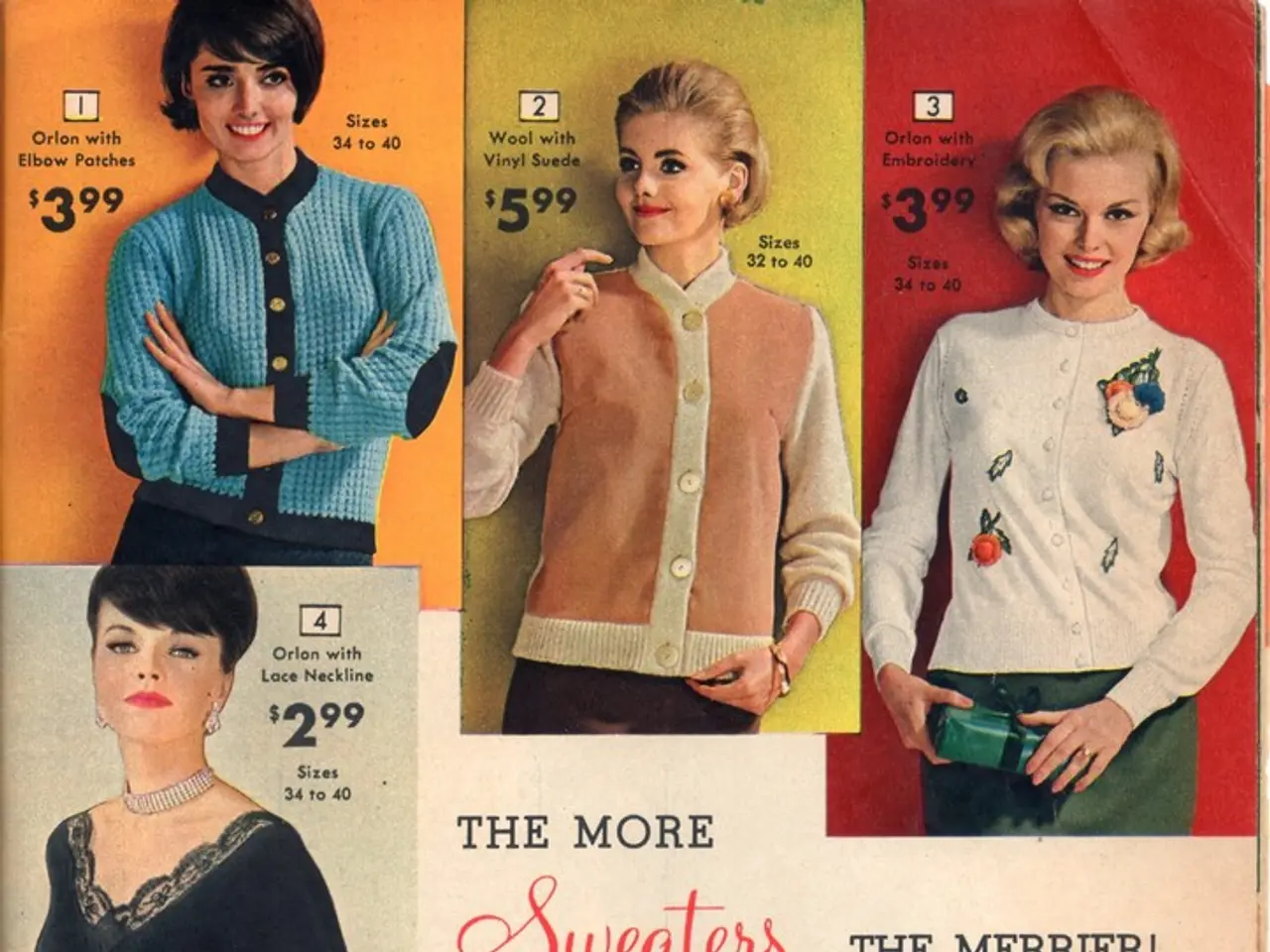Digital Beauty Redefinition: Miss AI Competition Embraces Bold New Perspective
In the rapidly evolving world of technology, the Miss AI Pageant, a digital beauty contest that redefines beauty standards using AI, has sparked a significant debate. The event, organised by the World AI Creators Awards (WAICAs), attracted 1,500 participants and awarded the winner a $5,000 cash prize and PR support worth over $5,000 [1].
The Miss AI Pageant evaluates contestants across three key areas: beauty, technology, and influence. The success of the event has been attributed to advanced image generation tools such as DeepFaceLab, DALL-E 3, and Stable Diffusion, which create photorealistic candidates [2]. However, experts have expressed concerns about the potential negative effects of AI-generated models on self-esteem in today's digital world.
AI-generated beauty standards show concerning patterns, with AI tools consistently generating slender figures and preferring medium and light skin tones over dark skin tones [3]. This trend towards digital beauty contests has sparked discussions about beauty standards in the virtual space and their impact on body positivity and self-esteem.
The beauty technology market is expected to reach $4.74 billion in revenue by 2024, with an annual growth rate of 8.57% [4]. Yet, the success of the beauty industry depends on striking a balance between cutting-edge technology and responsibility. With 90% of Gen Z and younger millennials wanting clean beauty products, it is crucial to ensure that AI systems are transparent, prioritising data privacy and open decision-making processes [5].
The Miss AI pageant, by presenting algorithm-based ideal aesthetics, influences digital beauty norms, sparking debates about bias, hyper-perfection, and cultural diversity in online beauty standards [3]. AI tools struggle with accurate representation, especially with diverse facial features, achieving less than 10% accuracy when representing women with single eyelids, a common feature in people of Asian descent [6].
Ethical concerns also include the displacement of real human models and artists, as AI-generated models replace paid opportunities for people in fashion and beauty industries, possibly affecting livelihoods [1]. Critics worry that AI beauty standards contribute to societal pressure on young women and others to compare themselves to impossible ideals created by non-human digital personas [1].
Moreover, while AI in contests like Miss AI can celebrate creativity, there is a risk that such contests may prioritise artificial perfection over human diversity and authenticity, fostering exclusion rather than inclusiveness [3]. Transparency about a model's AI nature is essential, as undisclosed AI-generated images may deceive audiences and exacerbate the entrenchment of unrealistic norms [1].
In summary, AI-generated beauty standards in digital contests bring significant impacts, including reinforcing unrealistic beauty ideals, ethical concerns about replacement of humans in creative roles, and potential harm to mental health and social norms around beauty [1][3]. These issues call for careful ethical considerations, transparency, and efforts to promote diversity and authenticity alongside AI-driven innovation.
The EU AI Act, aiming to protect consumers while enabling technological progress, focuses on controlling digital beauty standards [7]. The Act establishes strict guidelines for AI applications, including beauty technologies, setting a precedent for responsible AI development in the digital beauty industry.
References:
- Miss AI Pageant: The Rise and Ethical Concerns of AI-Generated Beauty Standards
- Miss AI Pageant: How AI is Redefining Beauty Standards
- The Impact of AI on Digital Beauty Standards
- Beauty Technology Market Growth and Trends
- Gen Z and Clean Beauty: What Brands Need to Know
- AI Struggles with Accurate Representation of Diverse Facial Features
- EU AI Act: Protecting Consumers and Enabling Technological Progress
- What's concerning about the Miss AI Pageant is that it presents algorithm-based ideal aesthetics, influencing digital beauty norms and sparking debates about bias, hyper-perfection, and cultural diversity in online fashion-and-beauty.
- Experts worry that AI-generated beauty standards, like those showcased in the Miss AI Pageant, contribute to societal pressure on young women and others to compare themselves to impossible ideals created by non-human digital personas, potentially impacting self-esteem in today's digital world.




